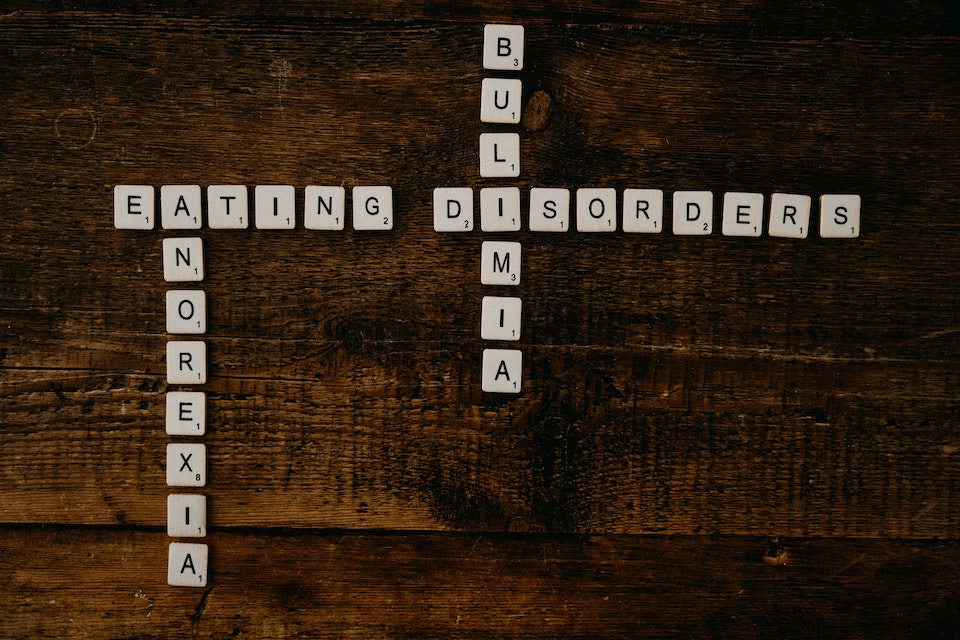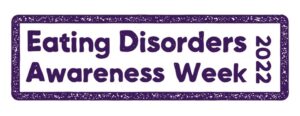
Eating Disorders Awareness Week (28 February - 6 March) helps fight misunderstandings over anorexia, bulimia, binge eating and other eating disorders. It also highlights the importance of receiving professional help early. Below, Martin Riley shares his experiences.
I can’t pinpoint when it started – it just seemed to creep up in my early twenties. Comments about my weight and height crept into my head and I started to see my body in a different way from reality. My wife Lindsay recognised something wasn’t quite right more than 15 years ago, and persuaded me to see my doctor.
I was diagnosed with bulimia, but my doctor’s response was that I looked healthy, so I was fine. In my head I convinced myself that nothing was wrong, and I could just carry on. I hope that today, any doctor wouldn’t dismiss me as easily.
It’s taken me years to accept that I have an eating disorder. I thought that not eating during the day, then bingeing after work was a character flaw rather than an actual illness. I blamed myself for being unable to control how much I ate, and to a degree, I still do. It makes me feel guilty and ashamed.

Years of denial
The first time I spoke to someone about my eating disorder was incredibly hard. I finally confessed to my wife that I had a problem. I’m lucky that Lindsay was, and continues to be, supportive; she just listened. After years of denial, it was a relief to finally admit I had a problem.
Living with an eating disorder feels humiliating. During a binge, I felt disconnected from everything, almost as if I was in a trance. I’d feel self-disgust and regularly concealed the evidence.
Worried
It’s an incredibly isolating illness. I’ve felt extremely self-conscious eating in front of people. In my mind, I worried others would think: ‘He’s fat enough, he doesn’t need any more food.’
I came up with a cunning plan to skip breakfast and lunch at work, then exercise in the gym until I dropped; that would solve all my problems. Of course, it didn’t.
Once I discovered the gym, I thought I had finally found a way to control my weight. I devoted hours trying to perfect the look I craved in my head. I was determined to be slim. I resisted the urge to eat, ignoring the rumblings from my stomach. I could now eat what I wanted without guilt or risk gaining weight.
At my worst, I wasted hours looking at my body and feeling physically sick at what I saw. I didn’t leave home without a jacket or coat and covered up at every opportunity – I still do. I kept this a secret for a long time. One of my biggest regrets is not confiding in my dad before he passed away, and I’ve never told my mum.
Having an eating disorder can take over your life and consume every thought and behaviour. I’d become so overwhelmed that I felt increasingly lost.
Ongoing battle
I wish I could say I’ve made a full recovery but it remains an ongoing battle every day. However, I’m slowly hacking away at the negative thoughts fighting in my brain. Since admitting that I have a problem, I’ve found counselling beneficial, as well as talking openly with people about my experience.
My wife has been a massive support, despite finding it difficult watching me struggle, but we’re a team facing this journey together. I now have a routine with meals and exercise which is vital for my mental health.
A Modern Civil Service
As the Civil Service evolves into A Modern Civil Service, there’s increasing emphasis on being ‘innovative’ with growing recognition that human beings are complex with differing needs and sensitivities. That means looking beyond a ‘one size fits all’ approach so we can all maintain a happy, inclusive workplace. Line managers can play a key role in opening up conversations about eating disorders and building a supportive workplace.
Supporting colleagues with eating disorders
◼︎If you’re a line manager and sense a colleague may be struggling with an eating disorder, be supportive and show you care and listen.
 ◼︎Take a quiet moment to ask them privately if they’re alright and encourage them to speak openly and, where appropriate, signpost resources.
◼︎Take a quiet moment to ask them privately if they’re alright and encourage them to speak openly and, where appropriate, signpost resources.
◼︎If you’re concerned an employee’s performance may be impacted by an eating disorder, consider any positive steps to tackle underlying issues.
◼︎Try to address any concerns they may have and reassure them they’re a valued member of the team, and you’re offering support, not judging them.
Since launching a year ago, the Civil Service Eating Disorder Network (CSEDN) is committed to raising awareness offering valuable support for colleagues of those affected.
We should never judge someone on their appearance, so we must listen and keep making space for people to tell their stories. More than 1.6 million people live with an eating disorder, and around 25% are male. The good news is that a full recovery is possible.
Amazing support
Meanwhile, if you’re struggling, there’s amazing support through the Beat Eating Disorders website and the CSEDN’s Eating Disorders Workplace Toolkit. To seek support for yourself or someone around you, contact the Mental Health First Aider community and support networks in your department e.g. for parents or carers, as well as HR services for help.
I hope my story will encourage colleagues living with an eating disorder to take action and seek out support. For more information, contact the network at edsg@beis.gov.uk.

 ◼︎
◼︎
10 comments
Comment by Martin Riley posted on
Thank you all once again for the wonderful comments. I’m so pleased that my blog has resonated.
Writing this blog has helped me a great deal as I hope it has others.
Take care, be kind to yourselves and stay safe
Martin
Comment by Emma Wilson posted on
Like I have already said to you Martin, this is such a well-written blog. Despite the fact we don't know each other very well I really admire you for sharing your story.
Living with an eating disorder is so painful, which I'm aware of myself being in recovery from anorexia and bulimia. Well done for having the courage to write this.
Comment by Dave Chawner posted on
Absolutely love this (the article, not the fact that you have an eating disorder of course!) Brilliantly written, and I love the tone - no nonesense, down-to-earth and pragmatic. I also love how supportive everyone has been. More power to you Martin and keep going, it gets easier, believe me.
Comment by Rich Howorth posted on
Many thanks Martin for sharing your story and journey, and wishing you strength in your ongoing battle.
Like Louise and Alison, my then 14-year old daughter also developed anorexia following the first lockdown in 2020, but after a year of severe suffering and much trauma for her and all of us as carers I'm relieved to say that she is in a much better place and managing her health (physical especially) really well.
Time spent in hospital actually made her worse, and the FEDS counsellors didn't really help either. The key for us was for her to take control of her recovery - the very opposite of the standard approach that they apply - to give her agency and hope/motivation to get her life back on track.
Hope that this experience can help others too to tackle such a serious illness.
Comment by Martin Riley posted on
Thank you so much for all your wonderful comments.
Writing this blog helps me in my recovery.
Being able to be open and to talk about it is key to me.
Thank you once again
Comment by Alison Webster posted on
Thank you for sharing your story Martin. Like Alison, my daughter has an eating disorder (and is also due to go to university next year). I have found the Civil Service Eating Disorder Network and the people who share their stories, like you, so helpful. Even with the great support of CAMHS and my local eating disorder network, as a parent, it's sometimes difficult to fully understand the disorder and you do feel helpless. Hearing about the experiences of others really does help to give an insight. My daughter is still on her journey but she has come such a long way and I am incredibly proud of her. I wish you all the very best Martin.
Comment by Kay Cross posted on
As someone with BED who has only just accepted this, I have some insight into your journey. thank you for your courage in talking about it.
Comment by Alison Hodgson posted on
Martin
Thanks for sharing your story.
Through lockdown my then 15 year old daughter developed an Eating Disorder-she was diagnosed with anorexia but actually it was a combination of bulimia, bingeing and anorexia. The whole thing is so complex and as a parent I felt completely overwhelmed with worry and a feeling of helplessness. We did get help straight away and she had counselling from CAMHS.
She is in a good place at the moment and is eating normally again but I live in constant fear that it will come back to haunt her when her mental health is not in such a good place. She will go to University next year and again I worry about letting her go but I guess I will have to.
I hope you continue to make progress and keep strong and beat your demons-I think you are right-talking about it has to be a big step forward and your wife sounds amazing so you are a lucky man to have her. Onwards and upwards.
Comment by Louise Uffindell posted on
What an inspirational blog Martin, thank you so much for sharing your story. You and your wife sound like you make a great team 🙂
Comment by Martin Riley posted on
Many Thanks for you kind words.
It took me a long time to be able to talk openly about this, but I am glad that I did.